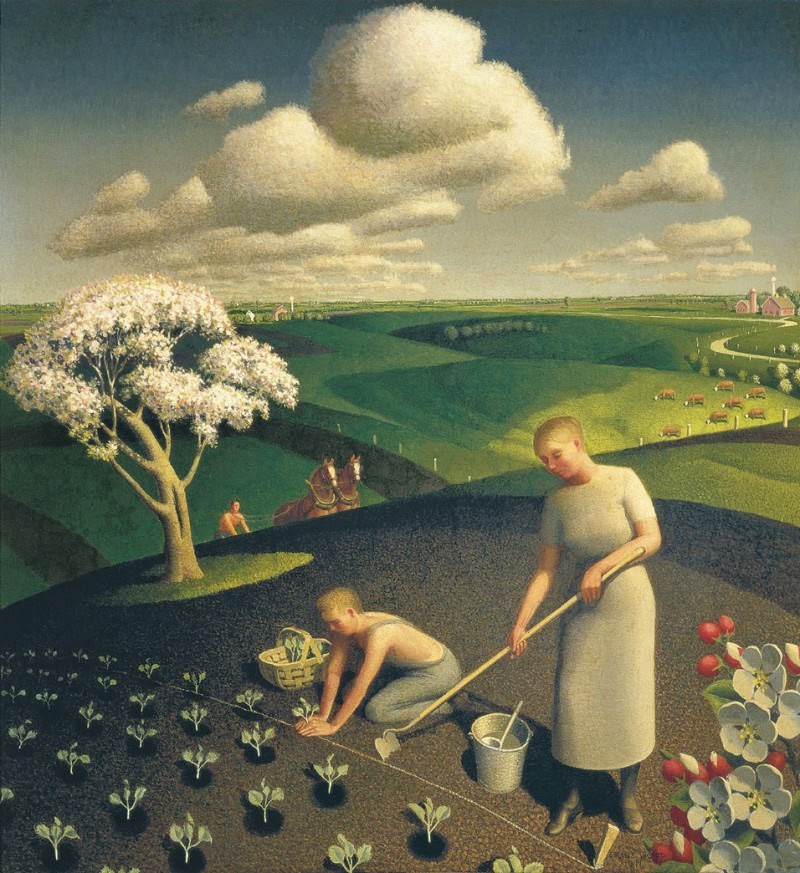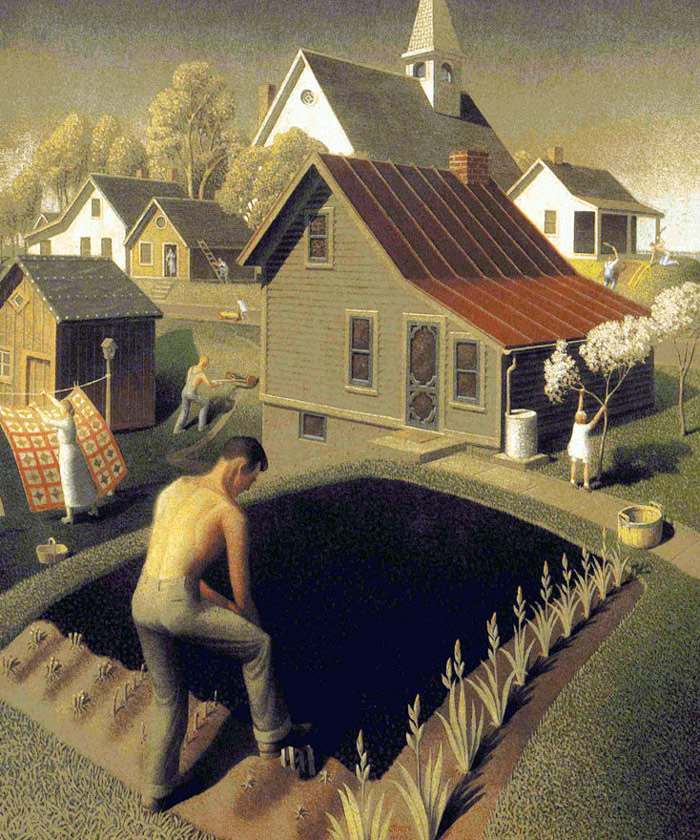March 20: Glory of the Lord Endures Forever
♫ Music:
Day 35 - Tuesday, March 20
Title: Glory of the Lord Endures Forever
Scripture: Psalm 104:27-35
They all wait for You
To give them their food in due season.
You give to them, they gather it up;
You open Your hand, they are satisfied with good.
You hide Your face, they are dismayed;
You take away their spirit, they expire
And return to their dust.
You send forth Your Spirit, they are created;
And You renew the face of the ground.
Let the glory of the Lord endure forever;
Let the Lord be glad in His works;
He looks at the earth, and it trembles;
He touches the mountains, and they smoke.
I will sing to the Lord as long as I live;
I will sing praise to my God while I have my being.
Let my meditation be pleasing to Him;
As for me, I shall be glad in the Lord.
Let sinners be consumed from the earth
And let the wicked be no more.
Bless the Lord, O my soul.
Praise the Lord!
Poetry: Sound Knows Its Place in the Air
By Malaika King Albrecht
You don’t have a soul. You are a soul. You have a body.
- C.S. Lewis
I.
Seeing becomes a study
of loss in slow motion.
A single grain of sand falls
and another and another.
A handful of sand—
not a beach and yet
all I can hold.
II.
There are no longer angels
in the flames. We have left
the fires untended on the beach,
and some have gone out.
I cannot invent
the exact light
of Your name.
III.
We are inconsequential
to the dance, but music
fills the air around us,
ocean waves, heart beats.
Grace lifts itself from the hems
of our tongues,
and we listen with our whole bodies.
I will not say your name
though I believe
it was You who called me
OUR WORK IS REST
In the fields of the Lord, our work is rest
In the fields of the Lord,
In the fields of the Lord,
In the fields of the Lord, our work is rest.
The lyrics of Audrey Assad and Isaac Wardell’s work song spoke truth to my heart. Rest. I long to nestle myself in my Father’s arms and know that my future—the course of my life—is in His hands. Yes, my life is in my Father’s hands. I know it in my head, but sometimes my heart takes longer to follow.
There is a practice in spiritual formation that invites us to ask where in a passage of scripture we see ourselves. I think we may also apply this practice to passages of literature, poetry, or song, and as I was listening to Audrey Assad and Isaac Wardells’ song In the Fields of the Lord I saw myself as a plant in the soil. I realized too that I expected to already be full-grown—but I’m not. Not yet.
I am easily caught up in the work that I need to do, and I know this is true for many of us—it seems the pace of our lives continues to move quicker and responsibilities and work surmounts. For me, feelings of inadequacy often enter my thoughts—both as artist and teacher. But the plant does not work beyond its capacity. Its work is rest. Its work is life. Its work is to be. It does not have to be other. It cannot be beyond what it already is. And it is planted where the Gardener plants it.
“He is moving in our hands and feet to bless.” But the thing is, God is calling us to work. It is both sides of the coin—to work in whatever capacity Christ has called us to, using the talents and particular personality with which He has gifted us—and to rest trusting He will produce the fruit.
In Spring in the Country, Grant Woods implements a circular composition. Our eyes move from the mother tilling the soil to the son planting, to the budding tree, upwards to the clouds, down to the cattle on the hillside, back to the mother again and then toward the father as he moves forward at the plough. This circuitous path of the eye emphasizes the cyclical nature of planting and harvesting and resting. The visual imagery of the painting also brings to mind an earlier passage of Psalm 104: “He causes the grass to grow for the cattle, and vegetation for the labor of man […]” We come to understand that our work is not our own. God is moving through our hands and feet to bless others just as the plants of the field bless and nourish us.
We work. We rest. We wait. In the first part of our passage, beginning with verse 27, the Psalmist writes:
They all wait for You
To give them their food in due season.
You give to them, they gather it up;
You open Your hand, they are satisfied with good.
Here, the Psalmist is referring to all creation. Reading through the entirety of Psalm 104, we are reminded that God set the earth on its foundation, God makes springs of water pour into ravines to provide water for all animals to drink, God makes grass to grow for the cattle, He makes plants to grow for the labor of man. Our Lord provides what we need when we need it. And not only that, we are the bearers of good for others’ needs: “We are like trees planted along the riverbank, bearing fruit each season without fail” (Psalm 1:3). May we rest in knowing that our work is not our own, but the Lord’s.
Prayer:
Today, my Father, let me be like a tree planted by the river, bringing forth fruit in its season. Let the sap of your Holy Spirit rise within me. Let me not become dry and barren but rich in abundance. May many weary ones find refreshment in the shadow of my branches.
Amen
(Brother) Ramon from The Complete Book of Christian Prayer
Kari Dunham
Adjunct Professor of Art
Biola University
About the Artwork #1:
Spring in the Country
Grant Wood
1941
Oil on Masonite panel
60 x 60 cm
Cedar Rapids Museum of Art
Cedar Rapids, Iowa
About the Artwork #2:
Spring in the Town
Grant Wood
1941
Oil on Masonite panel
66 x 60 cm
Collection of the Swope Art Museum
Terre Haute, Indiana
In spring of 1941, with war abroad and anxious foreboding at home, artist Grant Wood began sketches for Spring in Town, which he finished that summer along with Spring in the Country. The Saturday Evening Post, in support of the war, used Spring in Town. For Wood however the painting was done as a remembrance of his father. Grant’s love of landscape is evident in both paintings, as is his penchant for symbolism. The child seen pulling down the branch of a blossoming fruit tree is almost the mirror image of one of the boys gathering palm branches in Giotto’s Entry into Jerusalem. This detail seems to link this spring morning to a much larger narrative of death and resurrection.
About the Artist:
Grant Wood (1891-1942) was an American painter best-known for his paintings depicting the rural American Midwest. He is particularly known for his painting entitled American Gothic, one of the most iconic images of the 20th century. Wood worked in a large number of media, including lithography, ink, charcoal, ceramics, metal, wood, and found objects. His admiration for the works of German and Flemish Old Masters influenced Wood’s Realist style. Drawing upon memories from his early childhood spent on a farm, Wood exemplified the Regionalist style through his paintings of small-town folk and life in the Iowan countryside. By World War II, the rise in popularity of European abstraction put the figural style of Wood and the Regionalists out of fashion. Despite negative criticism late in his career, Wood adhered to the Regionalist style that he had made popular decades earlier with paintings of idyllic farmlands and busy farmworkers.
About the Music:
“In the Fields of the Lord” from the album Work Songs: The Porter's Gate Worship Project
Lyrics:
In the fields of the Lord, our work is rest,
He is moving in our hands and feet to bless.
In the fields of the Lord, in the fields of the Lord,
In the fields of the Lord our work is rest.
In the vineyards of the Lord our work is light.
He is tending every leaf and every vine.
In the vineyards of the Lord, in the vineyards of the Lord,
In the vineyards of the Lord our work is light.
In the garden of the Lord our work is sound,
He is weaving every thorn into a crown.
In the garden of the Lord, in the garden of the Lord,
In the garden of the Lord our work is sound.
At the harvest of the Lord the fields are white,
He will wipe away the tears from ev’ry eye.
At the harvest of the Lord, at the harvest of the Lord,
At the harvest of the Lord the fields are white.
About the Composer/Performers:
Audrey Assad, Isaac Wardell, and Paul Zach
In June 2017, a diverse group of Christian leaders and musicians met in New York City for the inaugural conference of the Porter’s Gate Worship Project. Spanning cultures, denominations, and traditions, the project’s purpose is to engage culture and offer hospitality to the world, particularly through the unifying power of music. For three days, this group of artists, pastors, and scholars - including Josh Garrels, Audrey Assad, David Gungor, Aaron Niequist, Liz Vice, and Stuart Townsend - engaged in meaningful conversation about the vocation of hospitality: “bringing work into worship and taking our worship to work.” The group also recorded a live, full-length album entitled Work Songs. The song “In the Fields of the Lord” is the creative collaboration of Audrey Assad and Isaac Wardell, and is sung by Audrey Assad and Paul Zach.
About the Poet:
Malaika King Albrecht is the author of three poetry books. Her most recent book What the Trapeze Artist Trusts has won an honorable mention in the Oscar Arnold Young Awards. Her chapbook Lessons in Forgetting was a finalist in the 2011 Next Generation Indie Book Awards, and received honorable mention in the Brockman Campbell Award. Her poems have been published in many literary magazines and anthologies, and has been nominated for the Pushcart Award. She’s the founding editor of Redheaded Stepchild, an online magazine that only accepts poems that have been rejected elsewhere. She lives in Ayden, N.C. with her family and is the executive director of Rocking Horse Ranch.
About the Devotional Writer:
Kari Dunham is an artist living in Orange, California. She holds an MFA in Painting from Laguna College of Art + Design and is an Adjunct Art Instructor at Biola University. She also teaches at Concordia University Irvine and Irvine Valley College. She is currently working on a 40-Day Lent Painting Project.

